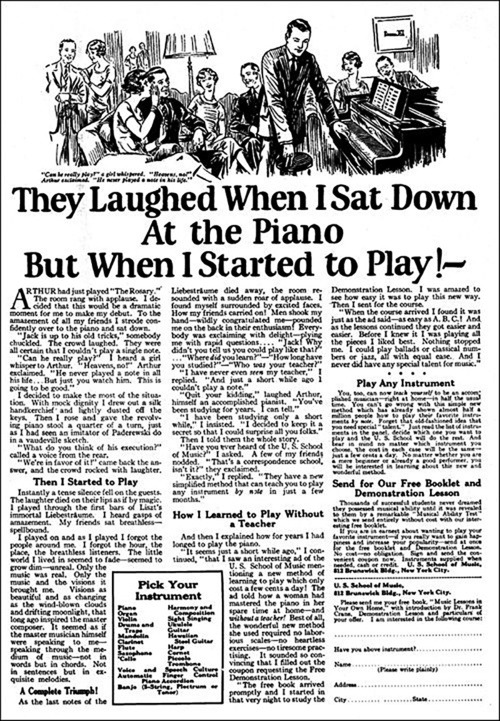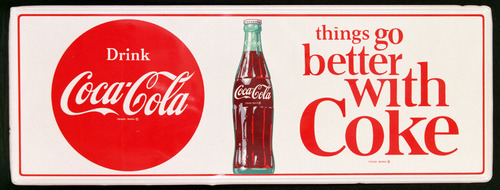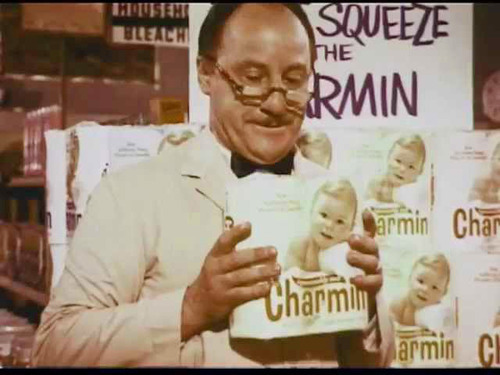 |
| The Nefarious HAL 9000 - Illustration by Danny Kay |
There's no longer any doubt. We've entered the Age of Big Data - or perhaps a better name might be "The Age of the Personal Brand."
Formerly the exclusive purview of large companies, development of a "brand" is now simply business as usual for millions of regular people. Social media, blogging and building a popular web presence have largely taken the place of traditional gravitas-building methods.
 | |
|
Hey, I’m not immune. To date I’ve got over 1.4 million views of my work on Google+ and over 1600 connections on LinkedIn. My blog has thousands of views as well.
But what’s it all worth? Can I point to any work that was booked or money I’ve made from all the time spent in Cyberspace? It’s all about the image; all about the “brand.”
And just as basic branding philosophy calls for uniformity across all touch points, so to do I strive to create a uniform look and feel across all media. The old saying “Don’t judge a book by its cover,” has really been pummeled and beaten into submission. Today, everyone and everything is judged by its “cover.” This is the face that’s shown to the world across social media.
That's not to say that you should only post professional items and have no other online life. Rather you should take care to not post items that cast you in a negative light.
HR departments routinely check out an applicant’s online presence as part of the qualification process, without regard to any actual relevance to the job.
Imagine, for a moment, the import of this.
In years past, interviewers had to rely on a resume and maybe some phone calls made to references. The primary yardstick was the candidate’s personal presentation.
Today, candidates are vetted in ways that are profoundly intrusive, with HR staff peeking into the nooks and crannies of people’s lives with little regard for privacy or even basic courtesy.
Of course job hunters themselves are partially to blame. Just because FaceBook and Tumblr and Twitter exist does not mean we have to put compromising posts on them. We should know by now that even private texts and emails are anything but private to someone determined to see them. People should use greater discretion (or maybe just basic good taste) before posting photos of them getting sick at a party, or showing off their tattoos and body piercings.
And more than that, we need to actively manage and curate those items that are posted.
In the Information Age, we need to be more careful than ever of what we reveal about ourselves. The instant, on-demand availability of every type of data has spoiled us. It’s become almost an assumed “right” to be able to find out almost anything about anyone, even (especially?) things they’d rather keep private.
Personal finances, pastimes and relationships are all considered legitimate targets. Ever in trouble with the law? Divorced? A few minutes in Google can reveal all.
And it’s the very titans of the Internet - executives of Yahoo, Google et al - who seek to portray themselves as championing the rights of the downtrodden - who are leading the greatest attack on personal privacy in history.
Every click in a web browser gives them more and more data on our hobbies, interests, finances and so much more.
And don't think it ends once you're hired. Recent articles in the news have detailed Amazon and Google, among others, who use extensive data collection on their employees to help improve productivity and efficiency.
It's like the old sci-fi stories. Living, breathing employees are being transformed into numbers on a spreadsheet at an astonishing pace.
There was a story a while ago about researchers who wanted to see how easy it was to find out enough information about the average person to fool him/her into thinking that the researchers were long lost pals.
They would go into a bar or restaurant and choose a "mark." Using photos taken on the spot with cellphone cameras, they used readily available facial recognition technology to identify the person through online posts. In minutes they could sift through the target's friends, family and history.
One of the researchers would then approach the target playing a long-lost friend, coworker or classmate.
The conversation would go something like this.
"Hey Bob! It's me, George! Don't you remember me? We were classmates in UCLA back in 2005. I still remember that party when our team won the big game in our junior year. Does your mom still make that amazing meatloaf?!"
In almost every instance, the casual use of personal data worked like magic. Even those few who were initially skeptical were soon enjoying the impromptu reunion.
In this case no real harm was done. They were researchers with benign goals. I believe they wound up revealing themselves to their targets and warned them of the dangers of posting too much personal information online. But it's easy to see how this capability could be used for nefarious purposes, e.g. to lure someone to a secluded place to rob them, or engage them in some other type of con.
The most startling part of this story was the incredible ease with which they pulled it off, all from readily available information. The days of the old "Mission Impossible" style preparation are gone. Now a scammer armed with only a web browser can find out all he needs to fleece you in mere moments.
I'm not advocating going "off the grid." What I am suggesting is that each person take control of his or her online identity. Try to be careful (or at least aware) when posting personal information.
And while we're at it, maybe let's put in an effort to make sure that the parts of ourselves that we leave online show us at our very best.
Danny Kay is marketing and advertising professional as well as a writer, designer and photographer with nearly 30 years of experience. He's worked with businesses and organizations of all sizes, up to Fortune 500.
He can be reached through his website, www.dannykaydesign.com, or at dannykay@mac.com.
PS - This blog is now featured on http://Alltop.com, your source for all the top stories!
PPS - Follow me on TWITTER @dannykaydesign
© 2015 Danny Kay - All Rights Reserved





























